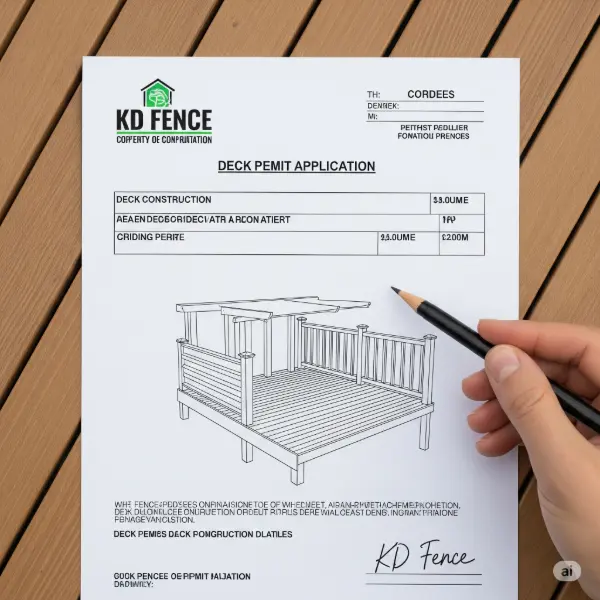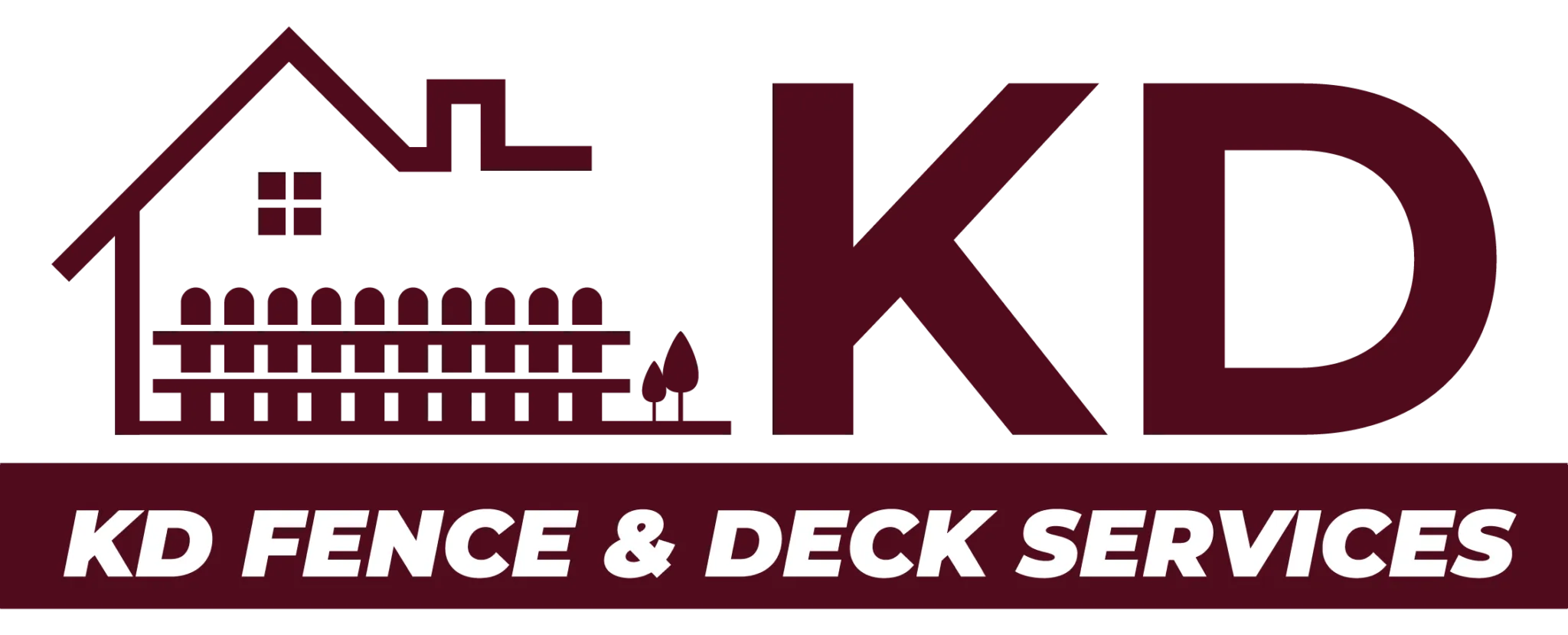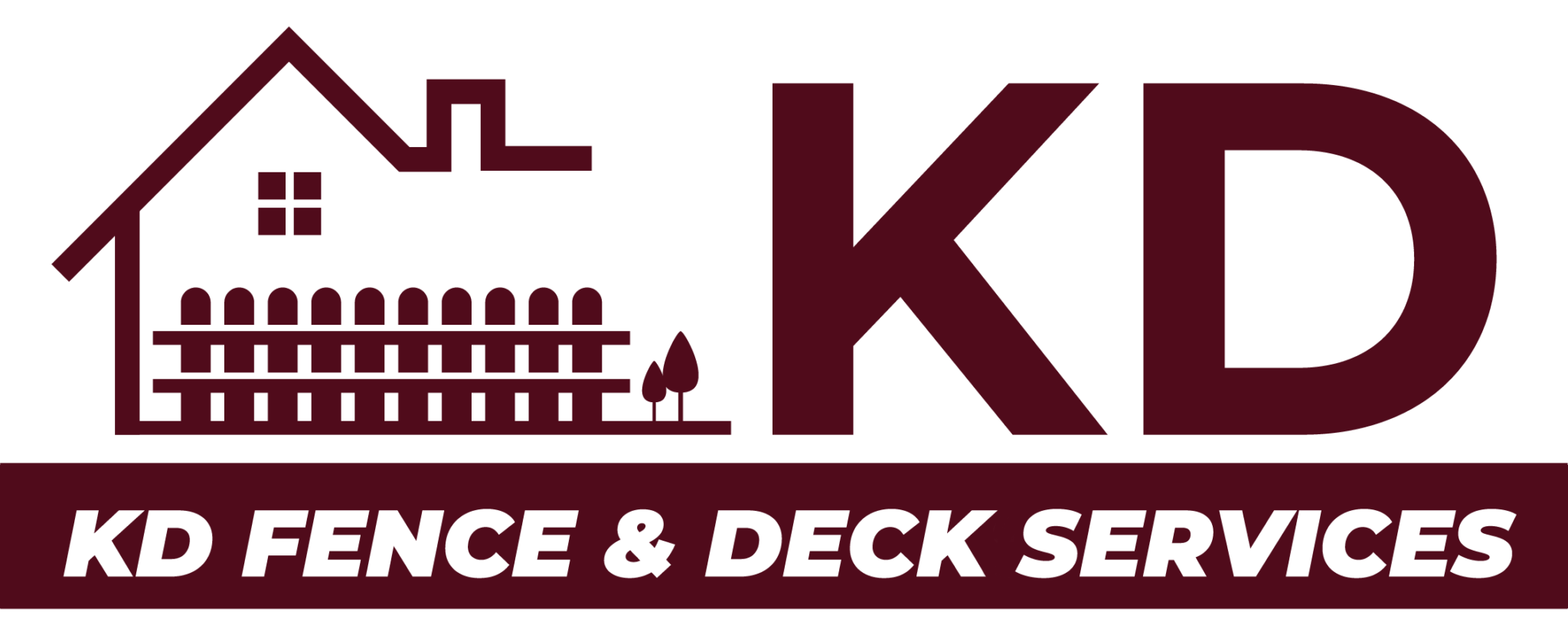Thinking about building or fixing up a deck in 2025? If you want a fun spot for summer hangouts or to make your house more valuable, understanding the deck permit process is super important.
A lot of homeowners skip this step, but that can cause big problems like getting fined or being told to take the deck down.
In this easy-to-understand guide, we’ll explain everything about deck building permit requirements, the newest deck regulations, and how to follow your local building codes.
Why Do You Need a Deck Permit?

A deck permit isn’t just some boring paperwork — it’s something you legally need in most places. It helps make sure your deck is strong, safe, and follows the rules. Inspectors use it to check that your deck follows local regulations and building codes.
If you skip getting a permit, you could:
- Get fined
- Have problems when trying to sell your home
- Be forced to tear down your deck
End up with a deck that’s unsafe
Common Deck Permit Laws in 2025
The rules can be different depending on where you live, but here are some usual deck permit laws people need to follow in 2025:
| Requirement | Details |
|---|---|
| Permit Required | For decks over 30 inches above the ground or attached to the house |
| Site Plan | Must show deck size, how far it is from property lines, etc. |
| Structural Details | Must include beam, joist, and footing sizes |
| Inspection Schedule | Usually done in steps: footing, framing, and final checks |
| HOA Approval (if needed) | Get this before applying for the permit |
Lots of cities have made their codes tougher to make decks safer and stronger. That’s why you should check your city’s construction permits rules.
Deck Building Permit Requirements by Location
Where you live makes a big difference in if you need a permit and what you’ll need to show. For example:
- Albany, NY: You need a permit for any deck bigger than 100 square feet.
- Atlanta, GA: You need a permit for attached decks, no matter the size.
- Los Angeles, CA: The deck regulations are stricter because of fire safety concerns.
You can usually find these rules on your city’s website or by calling the building office.
Do You Need a Permit for All Types of Decks?
Not always. Here’s a simple chart:
| Type of Deck | Permit Required? |
|---|---|
| Ground-level deck under 30" high | Usually no (but check local rules) |
| Attached deck | Yes |
| Elevated deck | Yes |
| Floating/freestanding deck | Depends on size and location |
| Deck with roof or cover | Yes |
Even if a permit isn’t needed, you still need to follow deck regulations to make sure your deck is safe and built right.
Understanding the Permit Application Process
Getting a deck permit usually means doing the following:
- Submit Plans: You’ll need to draw your deck plans and include size, materials, and other info.
- Pay Fees: These fees usually cost between $100 and $500, depending on where you live.
- Wait for Approval: It might take a few days or a few weeks to get the OK.
- Schedule Inspections: Inspectors will check different parts of the deck as it’s being built to make sure it meets the rules.
If you hire a contractor, they often handle this stuff for you — just make sure to ask before the work starts.
Tips to Stay Compliant with Deck Regulations
- Hire Licensed Professionals: They know the building codes and can help avoid problems.
- Get HOA Approval Early: If you live in a neighborhood with an HOA, get their OK first.
- Keep Copies of Everything: Save your permits, inspection reports, and any contractor paperwork.
- Stay Up-to-Date: Deck regulations can change each year, especially in 2025 with new safety rules.
What Happens If You Skip the Permit?
Some people think they can skip the deck permit, but inspectors often find out during home sales or when neighbors complain. Here’s what could happen:
- Big fines
- You may have to tear down the deck
- Possible legal trouble
- Trouble selling your home
It’s really not worth the risk.
Building Codes: What’s New in 2025?
In 2025, many places have changed their building codes to keep up with safety and environmental changes. Some new things include:
- Lateral load connections: These help prevent the deck from collapsing.
- Fire-retardant materials: Super important in places like California.
- Sustainable construction: This means using recycled materials and letting water soak into the ground better.
Following the updated deck permit laws helps keep you safe and makes your deck last longer.
For a deeper dive into deck building codes and why compliance is essential for safety and legal protection, check out this comprehensive guide to deck building codes.
Conclusion
Building a deck in 2025 is a fun way to enjoy your backyard more, but don’t forget how important a deck permit is. It helps you avoid fines, makes sure your deck is safe, and protects your home’s value.
By learning about deck regulations, following your town’s construction permits rules, and sticking to the building codes, you’ll end up with a deck that’s safe and long-lasting.
Before you start, check out our article: When to Replace a Deck vs. Repairing It: A Homeowner’s Guide to help you decide the best plan for your deck.
Frequently Asked Questions (FAQs)
Yes. Even smaller backyard decks typically require a permit—especially if they’re attached to your home, elevated, or include railings or stairs. Skipping the permit could lead to fines, forced removal, or complications when selling your home.
Most municipalities require:
- Detailed construction drawings
- Site plans
- Material lists
Your design must follow local building codes regarding height, setbacks, and structural support. Always confirm specifics with your local zoning or building office.
Laws vary widely. Some areas may allow minor repairs without a permit, while others require permits for almost any change. Always check with your city’s building department to avoid surprises.
Building without a permit can result in:
- Fines or penalties
- Insurance issues
- Problems selling your home
- Legal action
- Required removal of the deck
It's not worth the risk—get the proper permits upfront.
Start with your local building department’s website for step-by-step guidance. You can also read our helpful resource: Top 10 Questions Homeowners Ask About Deck Construction for expert tips and compliance advice.
Looking to enhance your outdoor space while staying fully compliant with local laws?
KD Fence & Decks is here to help. With over 10 years of experience, our ACI-certified pros specialize in designing and installing secure, stylish, and code-compliant decks, fences, and railings.
We handle everything—from permits to professional installation—ensuring your deck is built right the first time.
Get a Free Quote Today. Call +1 (716) 452-9220 or visit kdfencing.com to get started. Let KD Fence & Decks bring your vision to life—securely, beautifully, and 100% by the book.

